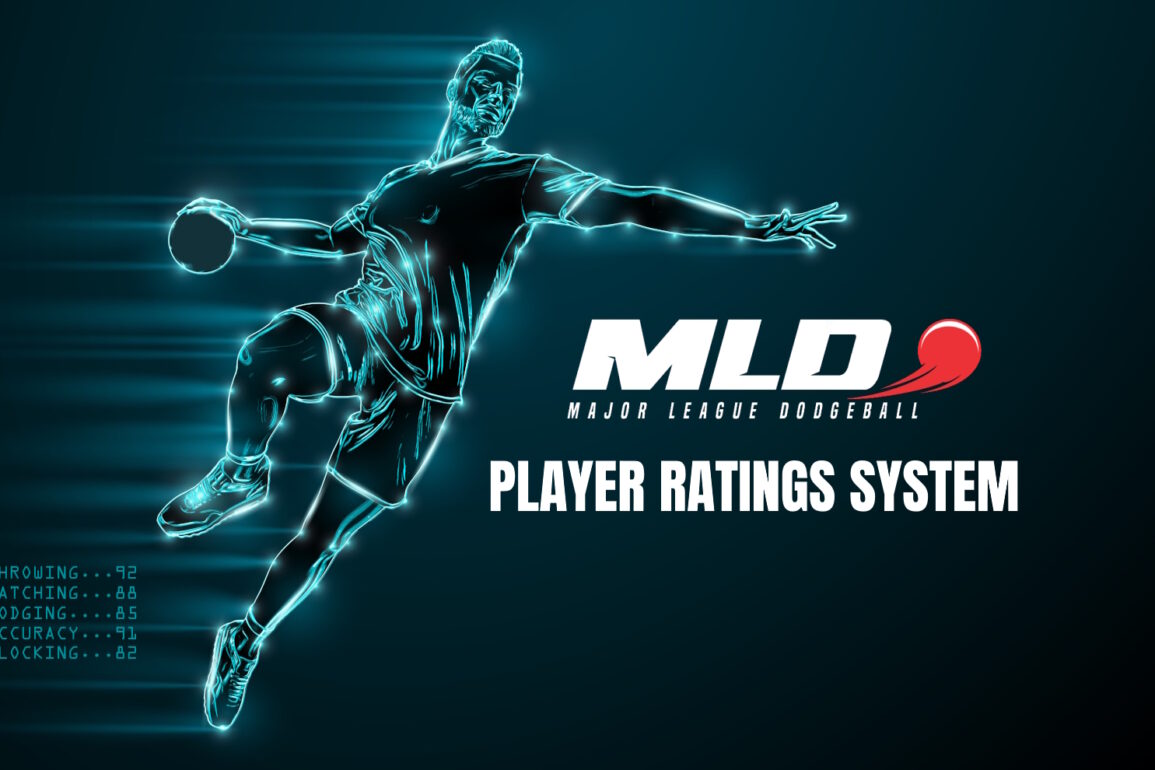A ratings system for dodgeball players can be useful in categorizing players by skill levels. Dodgeball leagues and tournaments, for example, can use a ratings system to divide players into competitive and recreational divisions. Likewise, players can use such a system to decide at what level to play.
Major League Dodgeball (MLD) has developed a ratings system (below) using letter grades from A-D (and F), with A being the highest rating and D being the lowest skill level rating (and with F being a failing grade). Each grade can also be divided into plus and minus (A+, A, A-, for example).
The ratings system isn’t necessarily about how long a person has been playing the game of dodgeball. Some players with advanced throwing and catching skills might start out as an A player (but never an A+ player as it can take years to learn the subtleties and nuances of the game). Some D players can eventually become C or B players through continued participation and training, a process that can take three months to a year or more. And some C players, for example, are C players their entire dodgeball careers.
Prior athletic experience is often an important factor on where a player ends up on the skill level chart. Any athletic experience is generally a plus. Players with a background in baseball, softball, volleyball, and even seemingly incompatible sports such as soccer, tend to have higher ratings than those without prior athletic experience.
A Grade
A Grade players are the highest-skilled dodgeball players. A+ players are usually those who have competed, or have been considered, for national teams. A+ players usually throw 65-75mph (male players). Characteristics of A Grade players include:
- No apparent weaknesses.
- Highly accurate on most throws.
- Catches even the fastest and hardest throws.
- Maintains good court positioning.
- Soundly executes set plays.
- Executes team strategies to perfection.
- Makes appropriate game play decisions and executes successfully.
- Doesn’t make strategic game play errors.
- Very difficult to get out.
- Quick defensive and evasive actions.
- Ability to track multiple thrown balls and take appropriate actions (catching or dodging or both).
- Trains and plays year round.
- High level of knowledge of the game and rules.
B Grade
B Grade players are solid players but have some apparent weaknesses. Characteristics of B Grade players include:
- Knowledgeable about the game of dodgeball.
- Is accurate on many throws, but is inconsistent on accuracy.
- Catches well, but has difficulty catching fast and hard throws.
- Has good court positioning, but may sometimes end up in a compromised position on court.
- Not easy to get out.
- Moves well on the court.
- Works well with teammates on executing plays.
- Successfully executes team strategies with a few exceptions.
C Grade
- Generally understands the game of dodgeball but may not know all of the rules.
- Plays frequently, but perhaps not all year.
- Throws well enough to be a problem to the other team, but not well enough to be a viable threat.
- Can catch, but lacks consistency.
- Knows some basic strategy, but does not necessarily execute sufficiently.
- Knows where to position on the court, but will often end up in a compromised position.
- Not hard to get out by more advanced players.
D Grade
- May or may not understand the general rules of the game.
- May not be a frequent player.
- Lacks sufficient throwing skills to be effective.
- Does not catch well.
- Generally does not understand dodgeball strategy, or fails to execute strategy.
- Does not work well with team mates on coordinated plays.
- Does not position correctly on the court, often leading to a compromised position for an easy out.
F Grade
A grade of F is more about behavioral aspects than skill level issues. A grade of F is indicative of a person who should not be allowed to participate at a dodgeball event. Characteristics of F Grade players include:
- Rude, racist, sexist and demeaning comments from the person (including on clothing).
- Showing up to events obviously impaired from alcohol or illegal drugs (and bringing such items to events where prohibited).
- Angry or violent comments or outbursts.
- Physical assault of other players or participants including spitting, getting in the face of others, etc.
- Damaging equipment and facilities.
- Deliberately disrupting games by actions such as hogging balls and getting in the way of other players.
- Mean-spirited play, including deliberate close-range head shots, that could be injurious or harmful to other participants.
- Harassment or undermining of events and event staff or participants.
